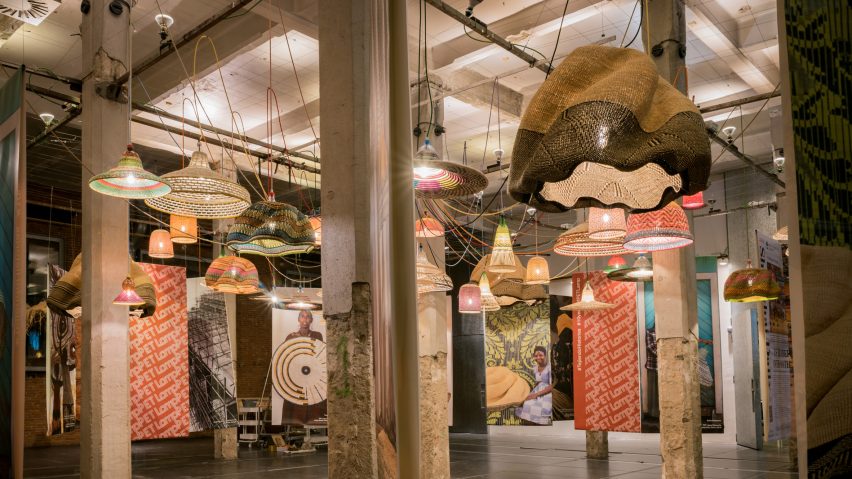
Álvaro Catalán de Ocón celebrates 10 years of turning bottles into PET Lamps
Spanish designer Álvaro Catalán de Ocón has created a Madrid Design Festival installation showing the results of a decade of working with artisans around the world to transform plastic bottles into woven lamps.
Exhibited at Matadero Madrid, PET Lamp: 10 years weaving stories featured designs created with local craft makers from Ghana, Ethiopia, Chile, Colombia, Thailand, Japan and Australia.
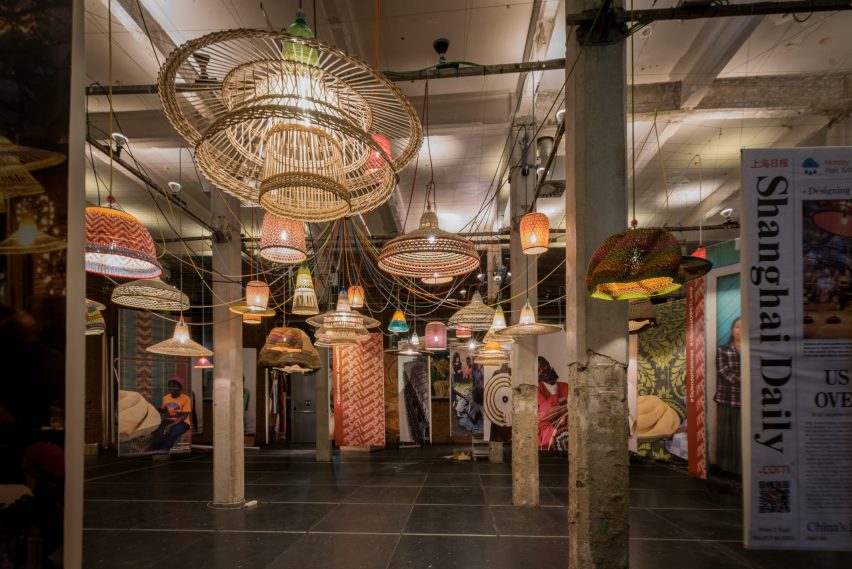
The installation included lamps in an array of shapes and sizes, showcasing how different regional communities each have their own unique weaving styles and traditions.
First launched in 2012, the PET Lamp project grew out of a method developed by Catalán de Ocón for transforming a used plastic bottle into a loom for basket weaving.
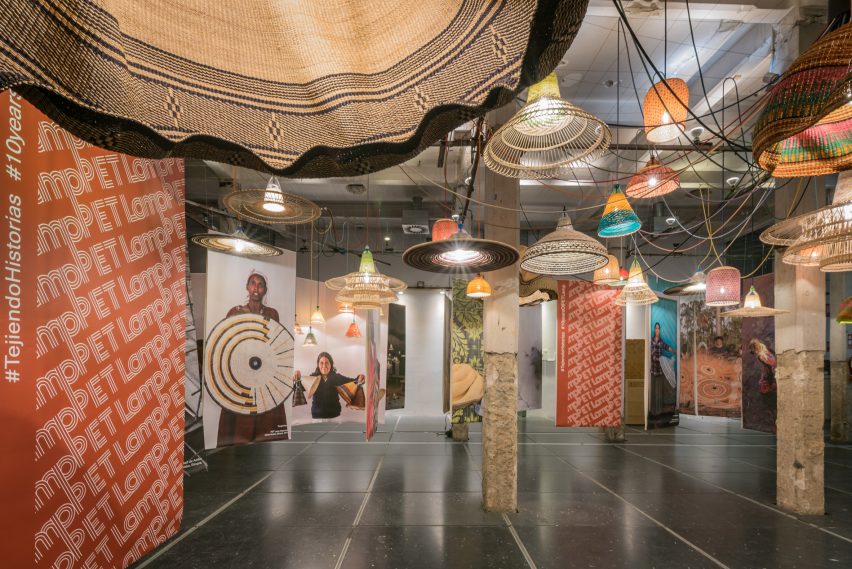
Experienced basket weavers then apply their own weaving techniques over the plastic framework, creating a woven shade for a pendant lighting fixture.
"We take local bottles and cut them in stripes like a loom, then indigenous communities of weavers intervene with their local fibres," Catalán de Ocón told journalists.
"We create the method, then they choose the colours and the patterns to apply," the designer said.
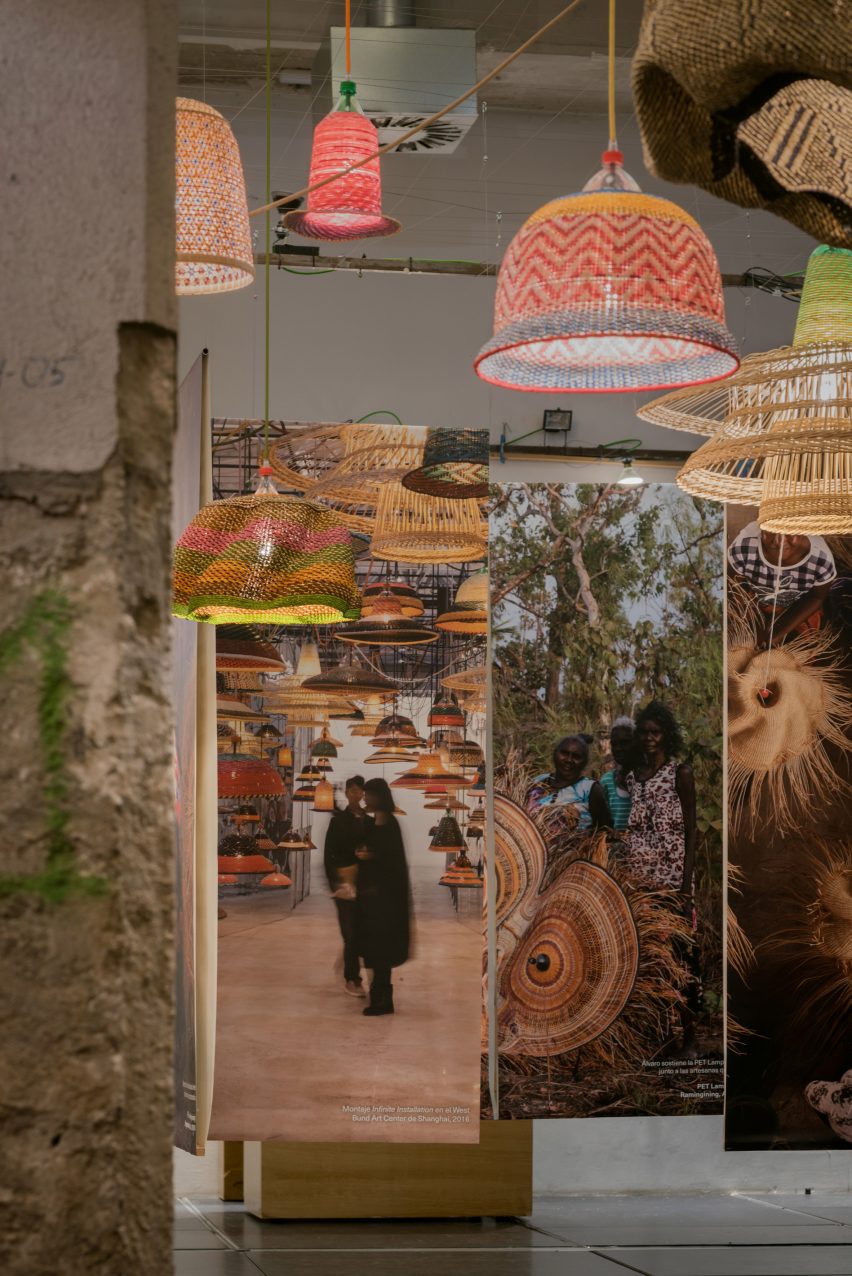
The first edition of the PET Lamp, called Eperara Siapidara, emerged out of a workshop with artisans in Bogotá, Colombia.
Together, they developed a design that plaits dyed "paja tetera" fibres, taken from palm or yucca plants, around the PET plastic framework. Every lamp was different, but they all incorporated pre-Hispanic motifs.
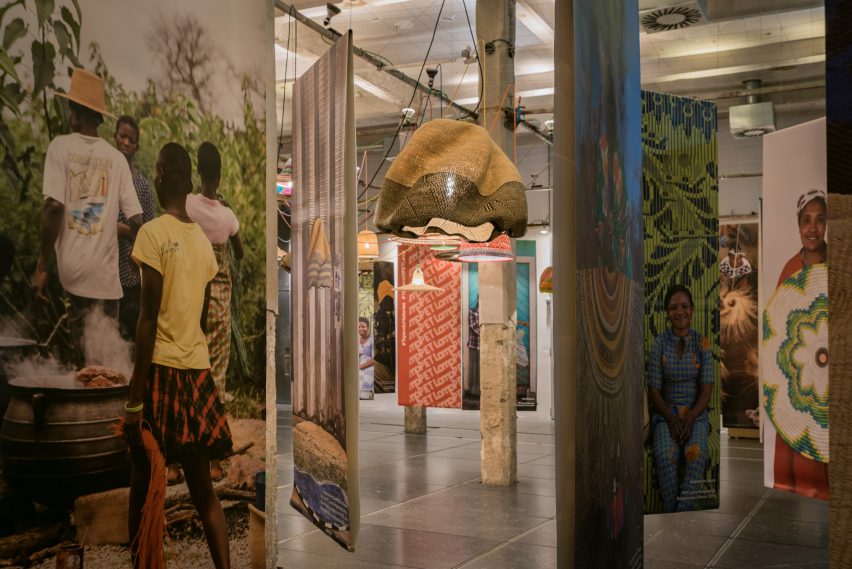
From then until 2019 – after which the pandemic made it impossible to scout out new workshops – Catalán de Ocón has started a new collaboration every year.
In 2014, he partnered with craft makers in Ethiopia's capital Addis Abeba on a collection of lamps that use a coiling method, while a 2015 project in Kyoto, Japan, resulted in intricate bamboo creations.
Two collections were produced in Chile, following workshops in regions with distinctly different traditions, while a large canopy integrating multiple lights was produced with Aboriginal makers in Ramingining, Australia.
The most recent collaboration, in Bolgatanga, Ghana, produced a large twisted design woven in elephant grass.
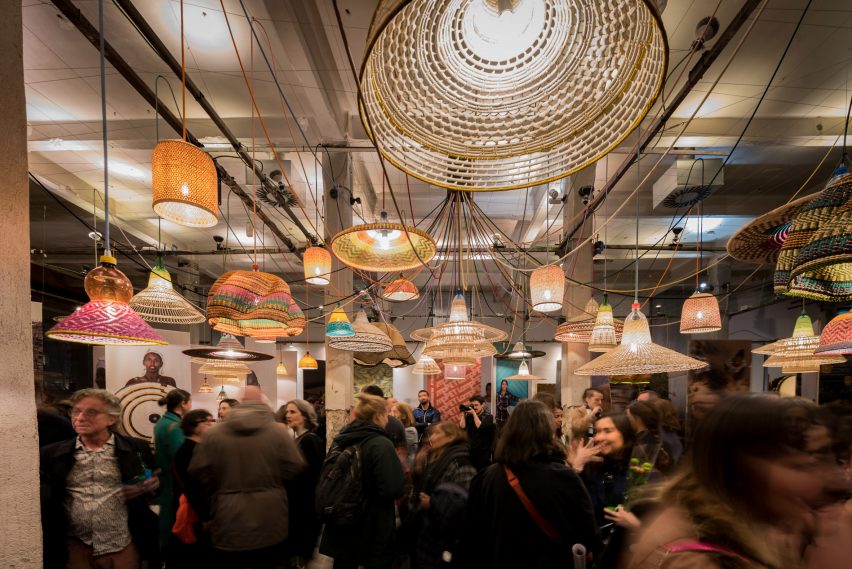
The PET Lamp has featured in numerous exhibitions around the world, at galleries including at Spazio Rossana Orlandi in Milan and 21_21 Design Sight in Tokyo.
For the exhibition at Matadero Madrid, the aim was to not only celebrate the different design styles that have been created over the years, but also to shine a light on the makers.
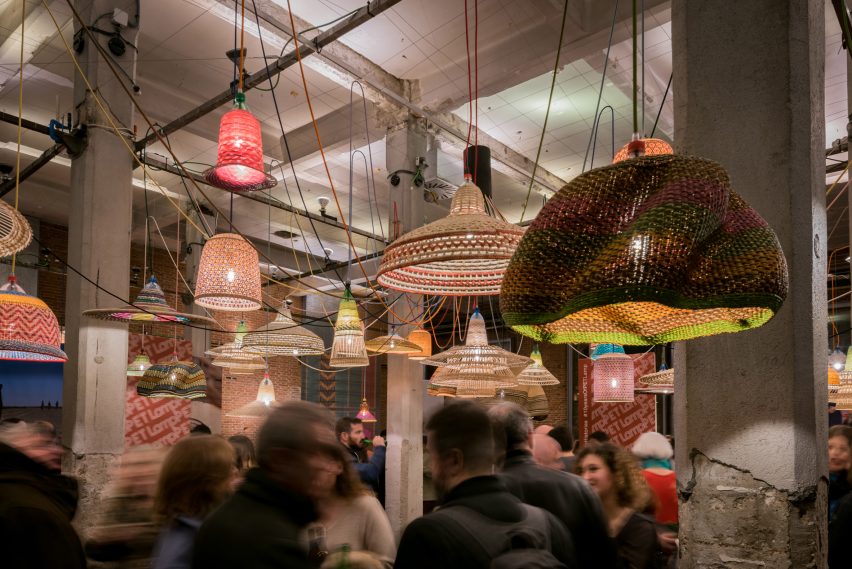
Lamps from each of the eight collections were suspended from the ceiling alongside previously unpublished photos of the weavers behind them.
This aligns with Catalán de Ocón's current strategy for PET Lamp, which is to pause on creating new collaborations and instead focus on maintaining the existing partnerships.
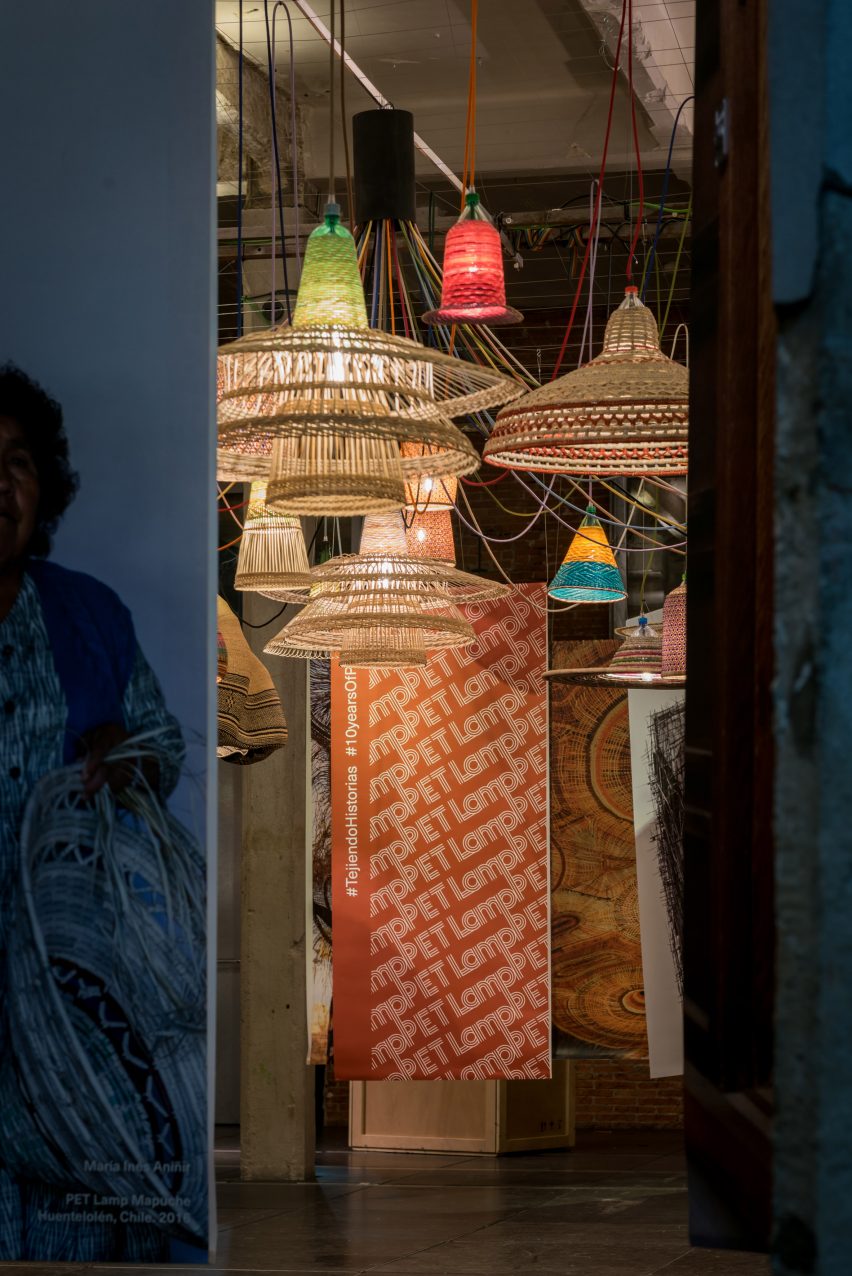
With the cost of transportation on the rise, the business is having to work harder to make the business viable without overinflating prices.
"Covid made us rethink," Catalán de Ocón told Dezeen. "We have the B Corp stamp, which certifies that we pay well, use materials responsibly and keep our carbon as small as possible."
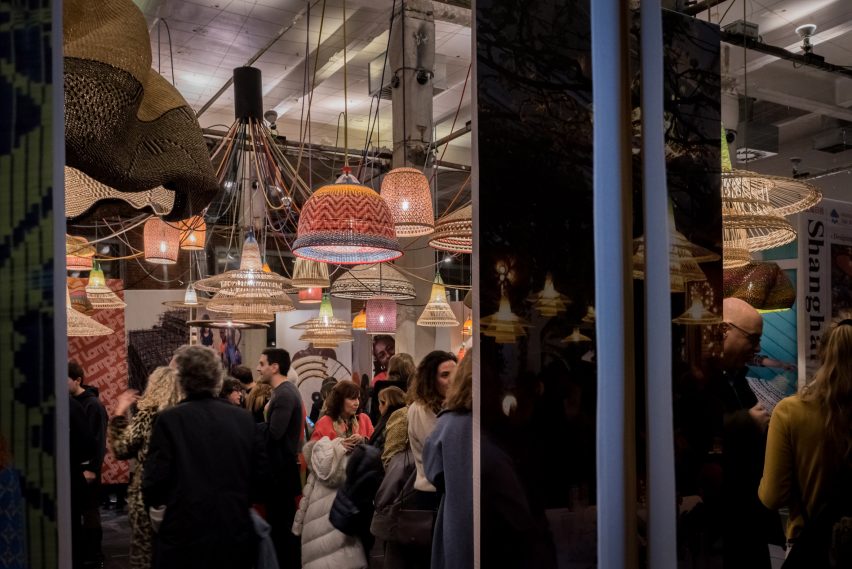
"We've already been all over the continents," he added. "Is it valuable to keep collecting more? Isn't it better to concentrate on what we already know?"
"That's why we decided to go back to our existing communities, to treat them as well as we can."
Other exhibitions showing as part of Madrid Design Festival include totemic designs by Los Ánimas and playful wooden furniture by Inma Bermúdez, Moritz Krefter, Jorge Penadés and Catalán de Ocón.
The photography is by Suanta.
PET Lamp: 10 years weaving stories was on show at Matadero Madrid from 15 to 26 February as part of Madrid Design Festival 2023. See Dezeen Events Guide for more architecture and design events around the world.